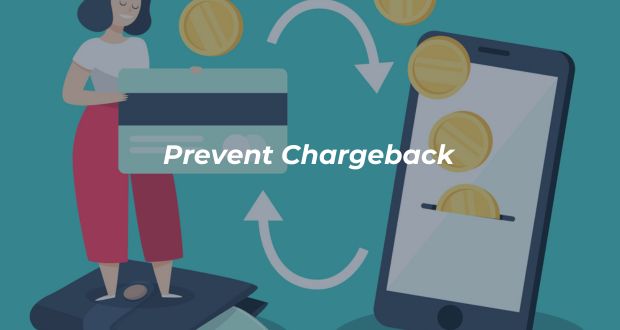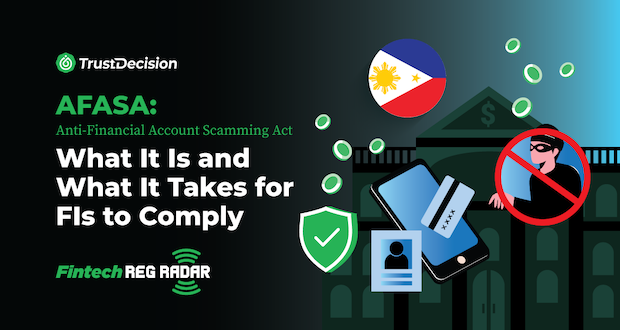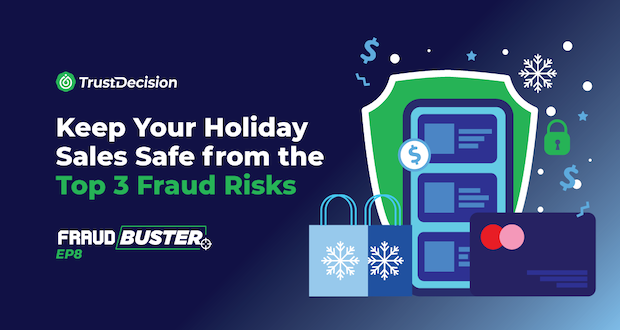Understanding Chargebacks
A chargeback is a reversal of a credit or debit card transaction initiated by the cardholder's bank. Essentially, it acts as a consumer protection mechanism, allowing cardholders to dispute unauthorized or erroneous charges on their accounts. The meaning of chargebacks extends beyond simple refunds; they involve a formal dispute process that can have significant implications for merchants.
How It Occurs on Debit and Credit Cards
Chargebacks can occur on debit and credit cards, though the processes and protections may differ slightly. When cardholders notice an unfamiliar or incorrect charge, they can contact their bank to initiate a dispute transaction. The bank then investigates the claim, and if it finds the dispute valid, it reverses the transaction, crediting the cardholder's account and debiting the merchant's account.
The Fair Credit Billing Act (FCBA) provides robust protections for credit cards, allowing cardholders to dispute charges within 60 days of the statement date. Debit cards, governed by the Electronic Fund Transfer Act (EFTA), offer similar protections but typically require disputes to be filed within 60 days of the transaction date.
Reasons for Granting Chargebacks to Cardholders
Chargebacks can be granted for various reasons, often falling into one of the following categories:
- Fraudulent Transactions: When a cardholder's information is compromised and used without their authorization, resulting in unauthorized charges.
- Items Not Received: When a cardholder orders goods or services that are never delivered.
- Merchant Errors: Mistakes such as duplicate charges, incorrect amounts, or billing for items not purchased.
- Technical Issues: Problems like system errors that result in incorrect charges.
- Quality Disputes: When the received product or service does not match the description or is defective.
Understanding what is a chargeback and the various reasons they are granted is crucial for businesses aiming to minimize their occurrence. By addressing these common issues proactively, merchants can reduce the likelihood of chargebacks and maintain better customer relationships.
Differences Between Chargebacks and Refunds
While both chargebacks and refunds involve returning funds to a cardholder, they are fundamentally different processes with distinct implications for merchants.
Chargebacks
A chargeback is initiated by the cardholder through their bank, often after an unsuccessful attempt to resolve the issue directly with the merchant. It involves a formal dispute process where the bank investigates the claim. If the bank sides with the cardholder, the transaction is reversed, and the merchant is debited for the amount in question. Chargebacks can also result in additional fees and penalties for the merchant, and excessive chargebacks can lead to higher processing fees or even the termination of the merchant's account.
Refunds
Conversely, a refund is initiated directly by the merchant, typically in response to a customer request. This process is more straightforward and involves the merchant crediting the cardholder's account for the transaction amount. Refunds are generally seen as a positive customer service action and do not carry the same negative consequences as chargebacks.
Understanding the meaning of chargebacks and how they differ from refunds is essential for merchants to manage their financial health and customer relationships effectively.
Different scenarios call for either a chargeback or a refund, depending on the circumstances and the actions taken by the cardholder and merchant.
- Product Returns: If a customer receives a product and decides to return it due to dissatisfaction or a change of mind, they typically request a refund directly from the merchant. The merchant processes the return and issues a refund, maintaining a positive customer relationship.
- Faulty Items: When customers receive a defective or damaged item, they usually contact the merchant for a resolution. If the merchant offers a replacement or a refund, the issue is resolved amicably. However, if the merchant fails to address the problem satisfactorily, the customer may initiate a chargeback through their bank.
- Unauthorized Transactions: When a cardholder notices a charge they did not authorize, they are more likely to initiate a chargeback. This is common in fraud or identity theft instances, where the cardholder's information has been compromised.
- Service Not Rendered: If a customer pays for a service that is never provided, they may first seek a refund from the merchant. If the merchant does not comply, the customer can escalate the issue to a chargeback.
By clearly understanding the meaning of the dispute transaction and the appropriate scenarios for refunds and chargebacks, merchants can better navigate these processes and implement strategies to minimize their occurrence. This helps maintain financial stability and enhances customer satisfaction and loyalty.
Common Reasons for Chargebacks
Chargebacks can arise from various issues, each presenting unique challenges for merchants. Understanding these common causes can help businesses implement effective strategies to prevent chargebacks and maintain customer trust.
One of the most frequent reasons for chargebacks is when cardholders do not receive the goods or services they purchased. This can occur due to delayed shipments, lost packages, or incorrect deliveries. Customers who do not receive their orders within the expected timeframe may become frustrated and initiate a chargeback to recover their funds. Ensuring reliable shipping methods, providing accurate tracking information, and offering prompt customer support can help mitigate these issues and prevent chargebacks.
Merchant mistakes, such as duplicate charges or incorrect billing amounts, are another common cause of chargebacks. These errors can result from technical glitches or manual mistakes during payment. For example, accidental double billing can occur due to errors in the payment system, while incorrect amounts might be charged due to system malfunctions or human error. Such mistakes can quickly erode customer trust and prompt them to dispute the transaction. Implementing robust billing systems, regularly auditing transactions, and accurately training staff to handle payments can help minimize these errors.
Technical issues, such as system malfunctions or processing errors, can also lead to incorrect charges being applied to a cardholder's account. These discrepancies can be particularly frustrating for customers, leading them to seek a chargeback as a resolution. Regularly updating and maintaining payment processing systems, conducting thorough testing, and monitoring transactions for anomalies can help prevent these technical issues and reduce the likelihood of chargebacks.
Fraudulent charges due to compromised card information are a significant concern for cardholders and merchants. When a cardholder's information is stolen and used without authorization, they will likely dispute the transaction to recover their funds. Implementing advanced fraud detection tools, using secure payment gateways, and educating customers on safe online shopping practices can help protect against fraudulent charges and reduce the risk of chargebacks.
By understanding these common reasons for chargebacks and proactively addressing them, merchants can significantly reduce the likelihood of disputes. This helps maintain a healthy bottom line and fosters a positive relationship with customers, enhancing their overall experience.
The Chargeback Process
The chargeback process is structured and allows cardholders to dispute unauthorized or erroneous charges on their accounts. Understanding the intricacies of this process is crucial for merchants to manage and mitigate chargebacks effectively.
Cardholders’ Timeframe for Disputing Charges
Cardholders typically have a limited window to dispute charges, which varies depending on the card issuer but is usually around 60 to 120 days from the transaction date. This timeframe is critical, as prompt action is necessary to initiate the chargeback process. Cardholders must act quickly if they notice discrepancies or unauthorized transactions on their accounts to ensure their dispute is valid.
Challenges in Disputing Chargebacks
Disputing chargebacks presents several challenges for both cardholders and merchants. For merchants, the burden of proof lies in proving the transaction was legitimate. This often involves gathering complex documentation, such as invoices, shipping details, and communication logs with the customer, which can be time-consuming and resource-intensive. Additionally, handling chargebacks requires significant administrative overhead, diverting attention and resources from other business operations. The process can be costly in terms of potential lost revenue and due to chargeback fees and penalties that may be imposed if the dispute is not resolved in the merchant's favor.
Resolving disputes directly with merchants is often a more efficient and amicable approach for both parties. Ideally, merchants should communicate directly with cardholders to address their concerns promptly, which can prevent the escalation to a chargeback. By offering refunds, replacements, or resolving issues amicably, merchants can maintain customer satisfaction and avoid the negative consequences of chargebacks. Effective customer service plays a crucial role in this process, as it helps retain customer trust and reduces the financial and administrative burden of chargebacks.
In summary, understanding the chargeback process, including the timeframe for disputing charges, the challenges involved, and the importance of resolving disputes directly with merchants, is essential for businesses. By proactively managing these aspects, merchants can minimize the occurrence of chargebacks, protect their revenue, and enhance customer satisfaction.
TrustDecision's AI-Based Fraud Management Strategy
TrustDecision is dedicated to preventing financial crime by leveraging cutting-edge technology. Our AI-based approach combines behavioral analysis, real-time surveillance, and intelligent automation to offer a robust defense against fraud. By integrating these advanced technologies, TrustDecision ensures that businesses can stay ahead of fraudsters and protect their revenue and customer trust.
The TrustDecision-Verify Partnership: A Force Against Chargebacks
TrustDecision's collaboration with Verify significantly strengthens its ability to prevent chargebacks. Combining their strengths, the partnership delivers a comprehensive fraud prevention solution that addresses various challenges.
- Enhanced identity verification: Verify's identity verification capabilities, combined with TrustDecision's AI, create a robust system for authenticating customers and preventing synthetic identity fraud.
- Improved chargeback dispute resolution: The partnership provides tools to effectively dispute fraudulent chargebacks, reducing financial losses and protecting business reputation.
- Shared intelligence: By sharing data and insights, TrustDecision and Verify can stay ahead of emerging fraud trends and develop countermeasures accordingly.
Smart Analytics and Automation
TrustDecision's system excels in smart analytics and automation, providing real-time surveillance that monitors transactions and detects anomalies within milliseconds. This rapid detection capability is crucial for identifying potential fraud before it can impact the business. By automating processes based on risk scores, TrustDecision automatically flags high-risk transactions, allowing businesses to take immediate action. Additionally, the system provides detailed insights into each transaction, empowering decision-makers with granular information to respond effectively and make informed decisions swiftly.
Smart Adaptive Machine Learning
A cornerstone of TrustDecision's strategy is its smart adaptive machine learning technology. Our machine learning models continuously evolve to recognize new fraud tactics, ensuring the system remains effective even as criminals develop more sophisticated methods. By learning from historical data, TrustDecision improves its accuracy over time, identifying patterns and anomalies that may indicate fraudulent activity. This continuous evolution and learning process enable TrustDecision to stay ahead of fraudsters, providing effective threat mitigation and protecting businesses and their customers.
Industry-Specific Solutions
TrustDecision also offers industry-specific solutions, tailoring its fraud prevention techniques to meet the unique needs of various sectors, such as e-commerce, finance, and healthcare. TrustDecision ensures that businesses receive the most relevant and effective protection by customizing defense strategies based on domain expertise. Furthermore, the system fine-tunes rules to minimize false positives, ensuring that legitimate transactions are not blocked unnecessarily. This targeted approach enhances security while maintaining operational efficiency and improving customer experience.
TrustDecision empowers businesses to confidently approve genuine orders, prevent fraud, reduce false declines, and avoid chargebacks. By leveraging our advanced AI-based fraud management strategy, businesses can enhance their fraud prevention efforts and protect their revenue.
Conclusion
In today's complex financial landscape, understanding and effectively managing chargebacks is crucial for businesses to protect their revenue and maintain customer trust. By comprehending the chargeback process, recognizing common causes, and implementing proactive strategies, merchants can significantly reduce the occurrence of disputes. TrustDecision's AI-based fraud management strategy offers an advanced solution, combining real-time surveillance, adaptive machine learning, and industry-specific customization to prevent fraud and minimize chargebacks. By leveraging these cutting-edge technologies, businesses can confidently approve genuine transactions, enhance customer satisfaction, and safeguard their financial health. Ready to elevate your fraud prevention efforts? Explore TrustDecision's solutions and start your 3-month free trial today!














